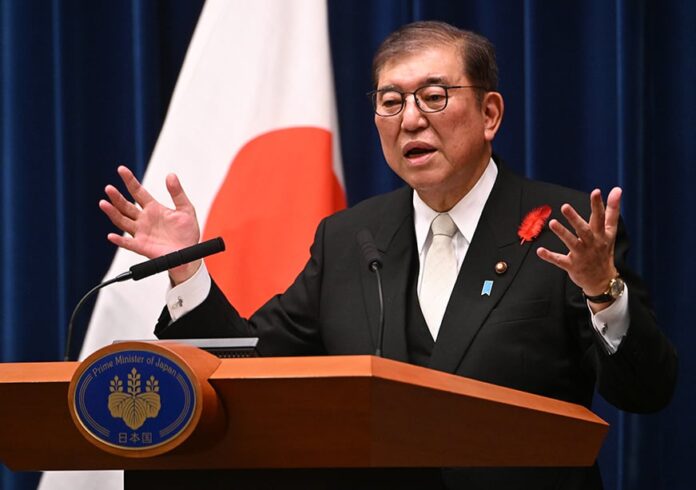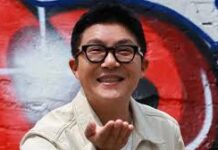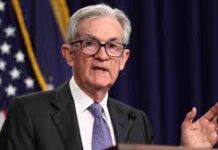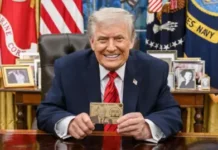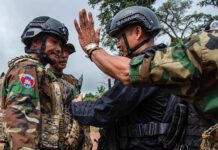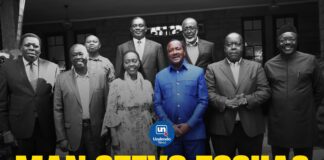Japanese Prime Minister Shigeru Ishiba has urged U.S. President Donald Trump to reconsider steep tariffs imposed on Japanese exports, during a 45-minute phone call held Friday morning Tokyo time, just ahead of a new round of bilateral trade talks.
Speaking at a press conference in Tokyo, Ishiba said he reiterated Japan’s firm stance on the removal of U.S. tariffs, emphasizing that the issue extended beyond duties to long-term investment and economic cooperation. “There is no change to our calls for the removal of tariffs,” Ishiba said. “It’s not just about tariffs but about investment. Japan and the U.S. will continue to cooperate in generating employment in the U.S.”
Japan, despite being the largest foreign investor in the U.S. and a key strategic ally, has faced a 10 percent baseline tariff on exports, with additional 25 percent duties targeting Japanese cars, steel, aluminum, and, more recently, auto parts such as engines and transmissions. Although Trump announced in April a pause on further tariff hikes until July, uncertainty still clouds Japan-U.S. trade relations.
The phone call came as Japan’s economic revitalization minister and tariffs envoy, Ryosei Akazawa, departed for Washington to begin a third round of talks aimed at easing trade tensions. “The series of tariff measures taken by the U.S. are regrettable,” Akazawa said at Tokyo’s Haneda airport. “We’ll strongly demand a review… but we’re aiming for a win-win solution.”
Japanese media reported that U.S. Treasury Secretary Scott Bessent would not participate in this round of discussions, though Akazawa is scheduled to return to Washington on May 30 for follow-up meetings.
Auto tariffs are a particularly sensitive issue for Japan, where the automotive sector accounts for roughly 8 percent of total employment. The Trump administration’s recent move to expand a 25 percent import tax on key auto components has further strained relations.
Despite Tokyo’s pledges, including Ishiba’s February promise to raise Japanese investment in the U.S. to $1 trillion, analysts remain skeptical of Japan’s leverage. “Japan’s position as the world’s largest foreign investor in the U.S. hasn’t shielded it from tariff threats,” said Stefan Angrick of Moody’s Analytics. “So promising more investment is an unconvincing bargaining chip.”
As broader U.S. trade tensions with China and the UK appear to ease, Japan’s challenge remains securing meaningful progress in its own negotiations.
Written By Rodney Mbua









